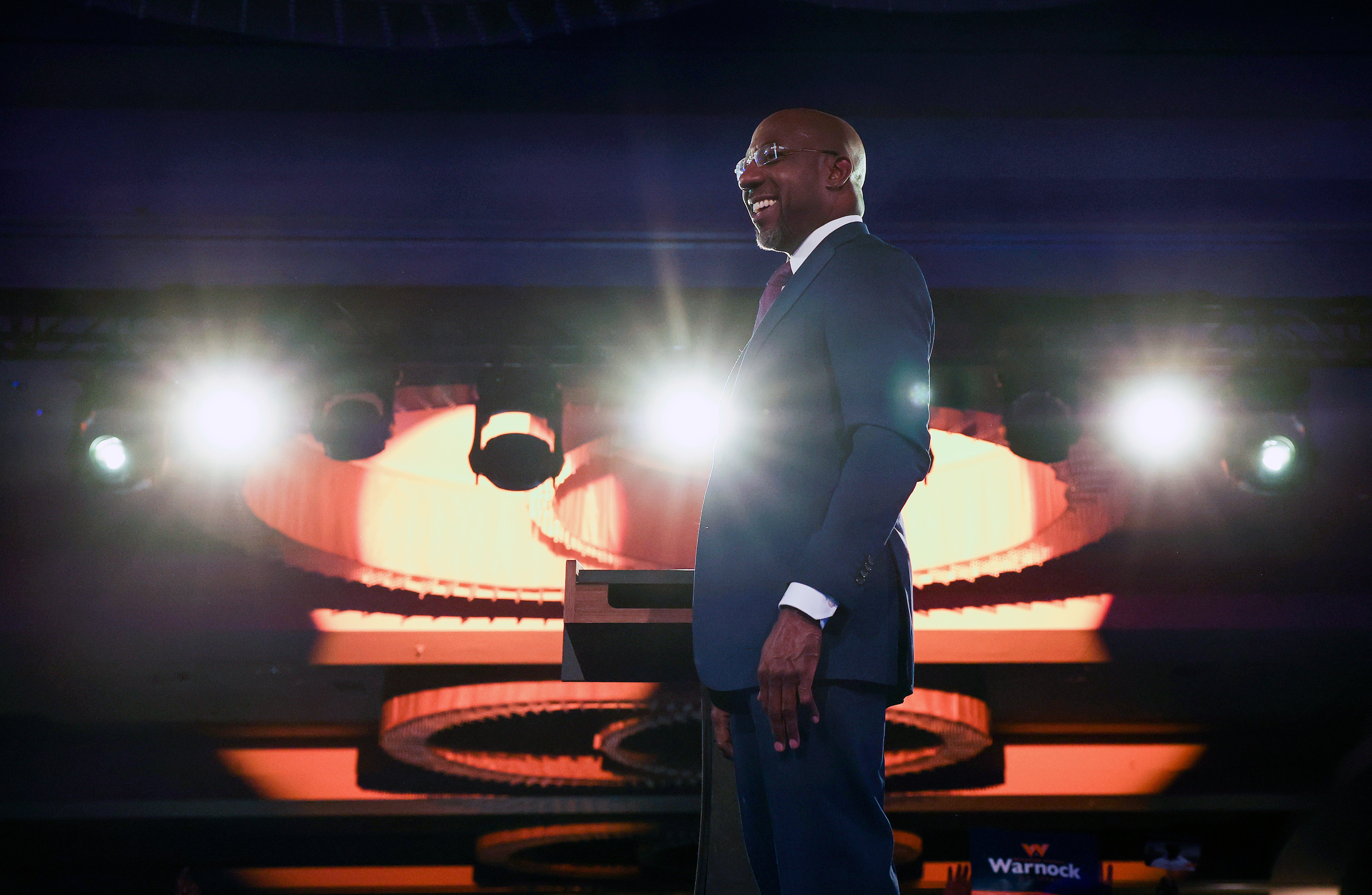Raphael Warnock’s victory means Democrats can drastically reshape the courts
Get ready for the Senate to become a judicial confirmation factory.


Your support helps us to tell the story
From reproductive rights to climate change to Big Tech, The Independent is on the ground when the story is developing. Whether it's investigating the financials of Elon Musk's pro-Trump PAC or producing our latest documentary, 'The A Word', which shines a light on the American women fighting for reproductive rights, we know how important it is to parse out the facts from the messaging.
At such a critical moment in US history, we need reporters on the ground. Your donation allows us to keep sending journalists to speak to both sides of the story.
The Independent is trusted by Americans across the entire political spectrum. And unlike many other quality news outlets, we choose not to lock Americans out of our reporting and analysis with paywalls. We believe quality journalism should be available to everyone, paid for by those who can afford it.
Your support makes all the difference.Democrats clinched the final seat that they needed on Tuesday night when Senator Raphael Warnock beat back Republican nominee Herschel Walker. After two years, the 50-50 split in the Senate is finally done since Democrats defended every Senate seat and John Fetterman flipped Pennsylvania’s open seat.
On the surface, that might seem like a pyrrhic victory for Democrats given that they lost control of the House of Representatives last month. Furthermore, gaining only one seat is not enough to cancel out conservative Democratic Senators Joe Manchin of West Virginia and Kyrsten Sinema of Arizona to eliminate the filibuster.
Those two factors mean that Democrats cannot pass a new version of the Voting Rights Act or codify protections for abortion rights, despite the fact that they largely held the Senate because of the Supreme Court’s Dobbs v Jackson decision which overturned Roe v Wade.
At the same time, that extra seat gives Democrats some additional powers.
After Mr Warnock and Senator Jon Ossoff won their elections in January of last year, Senate Majority Leader Chuck Schumer and Senate Minority Leader Mitch McConnell entered into an agreement where Democrats and Republicans would be equally represented on committees.
“Well, we have a power-sharing arrangement, which makes it really difficult to confirm judges and cabinet nominees,” Senator Brian Schatz of Hawaii told The Independent on Monday, before the election.
When Democrats wanted to confirm Ketanji Brown Jackson to the Supreme Court earlier this year, the Senate Judiciary entered into a deadlock because no Republicans on the committee voted to confirm her.
That forced Mr Schumer to file a motion to discharge her nomination to bring it to the Senate floor. Only then could the Senate vote to confirm Ms Jackson on the Senate floor– where she received three Republican votes.
In the same respect, Mr Schumer and President Joe Biden will likely take a page out of Mr McConnell’s playbook and turn the Senate into a judicial confirmation factory. Currently, US courts have 89 vacancies, with 44 nominations pending and 10 pending for future vacancies.
Mr Biden has already confirmed more judges than any other president at this moment in his presidency since John F Kennedy. He has also nominated a historically diverse set of judges, not just in terms of gender, race and ethnic background, but also in terms of experience. He’s nominated more former public defenders to serve on the federal bench, including Ms Jackson.
But public defenders often have records that Republicans dislike, making it harder for them to be confirmed out of committee. The additional Senate seat gives Democrats an incentive to confirm as many judges as possible.
In addition, many judges who are confirmed on the lower circuits could eventually be confirmed to the Supreme Court. President George W Bush nominated Brett Kavanaugh to the US Court of Appeals for the District of Columbia Circuit before former president Donald Trump nominated him to serve on the Supreme Court. Similarly, Barack Obama nominated Ms Jackson to a lower court before Mr Biden nominated her.
Join our commenting forum
Join thought-provoking conversations, follow other Independent readers and see their replies
Comments